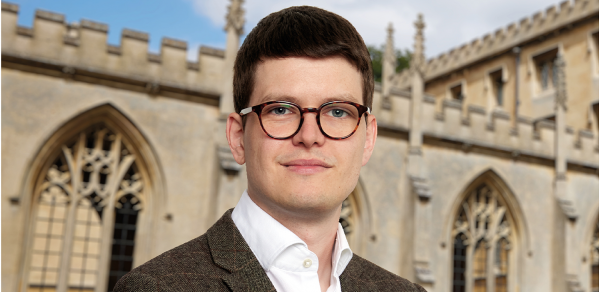
Dr. Vincent Fortuin has been selected for The Branco Weiss Fellowship, a program for outstanding postdoctoral researchers hosted by ETH Zurich. Dr. Fortuin now enjoys up to five years of academic freedom to perform his interdisciplinary research at any institution in the world.
I am deeply honoured by this award. It is a great confirmation of the importance of Bayesian deep learning for reliable AI, and of Cambridge’s position as a lighthouse in this field.
Dr. Vincent Fortuin
Dr. Vincent Fortuin is one of nine new fellows after an extended global recruitment campaign.
In his research, Dr. Fortuin will study the role of prior knowledge in Bayesian deep learning, working towards more data-efficient learning approaches targeted at critical applications, where model robustness and calibrated uncertainty estimates are crucial.
Dr. Fortuin recently discovered that popular deep learning models can be improved by incorporating domain-specific prior knowledge and that this can also overcome certain pathologies in their predictions. Especially in application areas where data are costly and datasets are small, this not only can improve the predictive performance, but also make the models more robust and trustworthy for practitioners and enable reliable uncertainty quantification.
Dr. Fortuin plans to extend this research during his fellowship to devise a unified framework for Bayesian deep learning on small datasets, which could unlock deep learning applications in areas where it currently is not feasible yet but where ample prior knowledge is available, such as medical and scientific applications.
The Branco Weiss Fellowship offers an opportunity for postdocs in all areas of the natural and social sciences as well as engineering who have conceived an original and independent research idea that falls outside the scope of large-scale research projects. This year’s new fellows come from a wide range of research fields including astronomy, biology, biochemistry, biotechnology, computer science, epigenetics, geophysics, medicine, neuroscience, physics, sciences of religions, and virology. They originate from France, Germany, Italy, the Netherlands, Spain, Sweden, Switzerland, Turkey, and the United Kingdom and are currently working at institutions and universities in the Netherlands, Switzerland, the United Kingdom, and the USA.
“The quality of applications for the Branco Weiss Fellowships is always impressively high. After rigorous rounds of evaluation by experts and the final interviews nine new fellows were selected. We are looking forward to the exciting new projects which complement and expand the research topics of the Fellowship community”, says the fellowship’s member of the directorate Heidi Wunderli-Allenspach.

